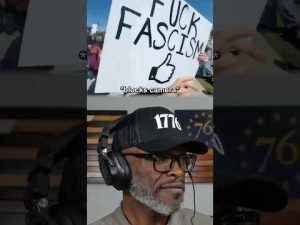In the land of tea, crumpets, and near-endless clouds, a chilling tale unfolds within the bustling streets of merry old England. And no, dear reader, this isn’t about Russell Brand or any other celebrity currently hogging the world’s spotlight. This is a story about knife crime soaring dramatically over the past decade, particularly affecting the young folks of England and Wales. Reports suggest an increase in knife offences, with most incidents linked to individuals from certain socioeconomic backgrounds. Yet amid this rising wave of violence, the powers that be seem more intent on banning ninja swords than addressing the real culprits behind these crimes.
As politicians engage in heated debates about which blades to outlaw, a new plot twist emerges—a side-story involving Russell Brand. Once a Hollywood darling and now dubbed as controversial for his outspoken views against big pharma and COVID protocols, Brand finds himself thrust into a whirlwind of allegations. After an 18-month investigation, British authorities charged him with rape and sexual assault. These claims coincide suspiciously with his shift from the mainstream narrative to a more contrarian voice, sparking questions about the timing.
The British public seems split. Many wonder how many resources directed at investigating Brand’s ancient allegations could have instead tackled the immediate issue of knife crime in sprawling urban areas. Brand denies the charges, describing himself as a man who embraced the follies of youth—yes, even admitting to past wrongdoings—but insists he’s no rapist. His newfound adversarial stance against dominant global power structures casts a shadow of doubt over the accusations, leading some to label this as a classic case of silencing a dissident voice.
Moreover, there’s a public perception that a dual justice system is at play—one tougher on straight, white Christian men, while exhibiting leniency towards those from minority backgrounds. This has sparked quite the uproar, especially among Brand’s supporters who argue this “system” targets those who dare criticize it. They draw parallels to past political witch hunts, where figures like Brett Kavanaugh and Donald Trump became lightning rods for discontent.
Meanwhile, as England grapples with these intertwined dramas—from street crime to celebrity trials—one thing is clear. The authorities’ focus on high-profile cases leaves the average Briton scratching their head over why rampant stabbings and crimes go unnoticed. Whether these charges against Russell Brand are proven or remain a theater of political repression, the real story seems centered on a curious justice system that many argue is less concerned with everyday safety and more with maintaining the status quo. Stay tuned, for surely more will unfold in this tale as English as afternoon tea.







